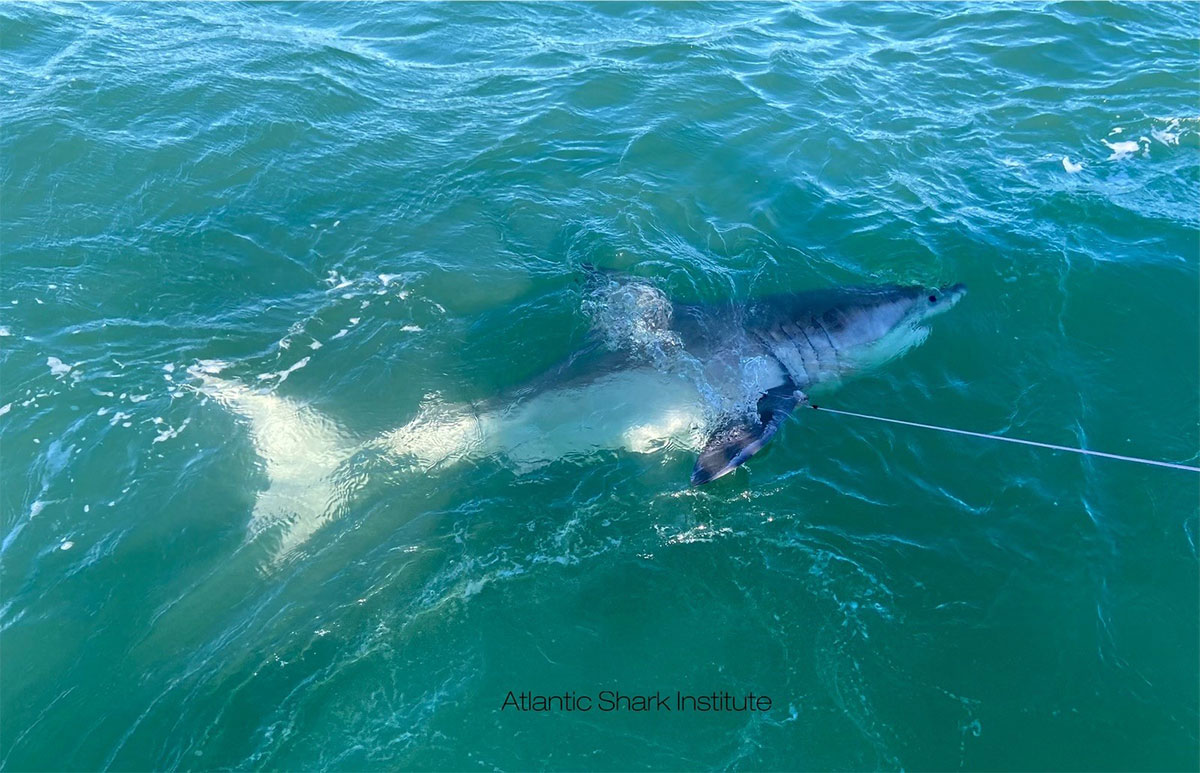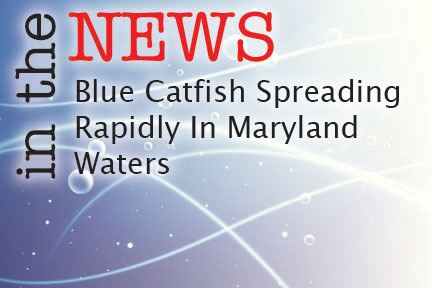Earlier this month, the Atlantic Shark Institute (ASI) announced that they achieved a significant milestone in their research on great white sharks in Rhode Island and surrounding waters. They recently tagged their 30th great white shark, with each tagged animal adding important data that helps scientists better understand this iconic species.
“When we started this project, we hoped we would be able to capture and tag ten white sharks to shed more light on white shark activity here in RI and surrounding waters,” shared Jon Dodd, Executive Director of the Atlantic Shark Institute. “To reach 30 white sharks tagged, this quickly, simply increases the likelihood of answering questions about how white sharks use Rhode Island waters,” he added.
“Even in 2024, there is still a lot we have yet to learn about the white shark, particularly in its younger years” Dodd continued. “Our focus on Young-of-the-Year (YOY) and juvenile white sharks, makes each one we are able to document, assess, tag, and release that much more important. Those sharks are the future of the species,” added Dodd.

According to the International Union for Conservation of Nature (IUCN), the white shark is considered vulnerable to extinction worldwide, and their population continues to decline. “Shark lovers around the world all hope to avoid the species’ elevation to the IUCN’s next designation: endangered,” Dodd observed. “People are often surprised to learn that a female white shark may not reach maturity until she’s in her 30s. That’s three decades that she’s not reproducing and replenishing the stock, and when she does, she only has between two and twelve pups per litter,” added Dr. Josh Moyer, Resident Research Scientist for the ASI. “That means that the species is slow to rebound in the face of fishing pressure. It also means that determining where juvenile white sharks spend their time, find food, and avoid predators is key to responsibly managing the species and ensuring its longevity,” he concluded.
The ASI tracks tagged white sharks using a combination of conventional tags, acoustic and satellite tags, and an array of acoustic receivers. Dodd and Moyer both emphasize that this work would not be possible without a team of more than 30 collaborators and research volunteers. According to the ASI, many of the most significant advances in shark research today are due to technological improvements. New, more efficient tags and monitoring systems allow researchers to determine location of sharks, how long they frequent a locale, what other species they may come into contact with, and much more.
While the majority of Rhode Island’s sharks left months ago when water temperatures dropped during the winter, they will return soon enough according to Dodd, and the team will be ready. “We are wrapping up data analysis season, and field season is almost here. In one way, it’s like the holidays for shark researchers! We love to be on the water. In another way, it can be the most grueling period of long, salty days waiting to encounter a shark. Most importantly, we will be ready with our tags, receivers, and camera systems to document and track the sharks. We owe it to the sharks and ocean health,” he concluded. “What’s more important than that?”
To learn more about the Atlantic Shark Institute and their efforts you can visit them at www.atlanticsharkinstitute.org or follow them on Facebook and Instagram.



